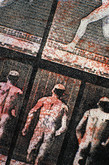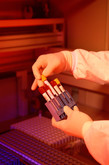Generics/News
|
Posted 31/08/2009
Just a year after swallowing the US$7.4 billion (Euros 5.3 billion) Barr Laboratories buy, Teva Pharmaceutical Industries is ready for another ‘major’ acquisition and may look beyond generic drugs for the purchase, CEO, Mr Shlomo Yanai, said. According to him, Teva is seeking targets to diversify in branded medicines as well as increase its market share in generic drugs. “If we find a target that is in line with our strategy in the specialty area, in the biotechnology area, we definitely are going to consider it,” Mr Yanai said. “We are not limiting ourselves to buying only generic companies.” He declined to name possible targets.
















